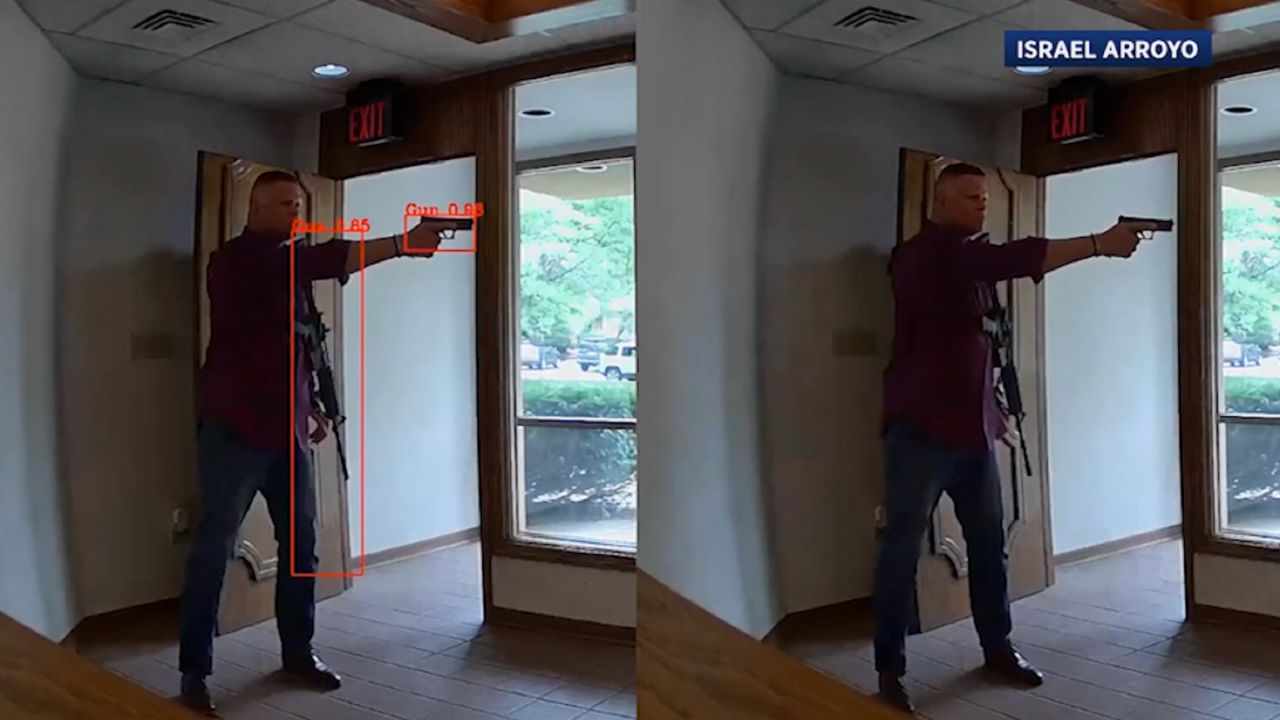The Supreme Court is taking up challenges to a Texas law that has virtually ended abortion in the nation’s second-largest state after six weeks of pregnancy.
What You Need To Know
- The Supreme Court heard two challenges Monday to Texas’ restrictive abortion law
- The Texas law, known as S.B. 8, prohibits abortion after cardiac activity is detected in a fetus, usually around six weeks – before some women know they are pregnant; it makes no exceptions for rape or incest
- Newly minted Solicitor General Elizabeth Prelogar called the law “an attack on the authority of this court to say what the law is” and argued that the federal government has an interest in protecting federal law when a state flouts its supremacy
- Marc Hearron, senior counsel for the Center for Reproductive Rights who is arguing on behalf of the abortion providers, said that “at issue here is nothing less than the supremacy of federal law”
The justices heard arguments Monday in two cases over whether abortion providers or the Justice Department can mount federal court challenges to the law, which has an unusual enforcement scheme its defenders argue shield it from federal court review.
The Texas law, known as S.B. 8, was signed into law by Gov. Greg Abbott in May. The restrictive law prohibits abortion after cardiac activity is detected in a fetus, usually around six weeks – before some women know they are pregnant. The law makes exceptions for medical emergencies, but not rape or incest.
In neither case is the right to an abortion directly at issue, but the motivation for lawsuits filed by abortion providers and the Justice Department is that the Texas law conflicts with landmark Supreme Court rulings that prevent a state from banning abortion early in pregnancy. The question on the table in the DOJ lawsuit is whether or not the federal government has the ability to sue Texas to block the law.
Newly minted Solicitor General Elizabeth Prelogar, arguing her first case on behalf of the United States since being confirmed to the role by the Senate last week, called the law “an attack on the authority of this court to say what the law is.”
When asked by Justice Clarence Thomas what the federal government’s formal interest is in suing Texas over S.B. 8, Prelogar replied that the U.S. has an interest in protecting federal law when a state flouts its supremacy.
“The United States may sue to protect the supremacy of federal law against this attack,” Prelogar argued.
When Thomas followed up to ask if there are any examples of the U.S. intervening in such a way to protect a constitutional right, Prelogar argued that the Texas law has no precedent.
Prior to Prelogar’s arguments, the court first heard from Marc Hearron, senior counsel for the Center for Reproductive Rights who is arguing on behalf of the abortion providers.
Hearron took a similar tact to the argument Prelogar later presented: “At issue here is nothing less than the supremacy of federal law,” he said.
In a notable exchange, Justice Amy Coney Barrett, the newest member to the high court, asked Hearron if the Texas law, as written, limits a defendant’s ability to mount a constitutional defense in state court: “The full constitutional defense cannot be asserted in the defensive posture, am I right?”
Hearron replied that is their understanding of the law.
Hearron argued in his closing remarks that S.B. 8 “will provide a roadmap for other states to abrogate other rights that have been recognized by this court.”
Texas Solicitor General Judd Stone argued that abortion clinics want an injunction against “the law itself,” which he said federal courts do not do.
The justices will hear a separate challenge to the decisions in Roe v. Wade and Planned Parenthood v. Casey in a case over Mississippi’s ban on abortion after 15 weeks. Those arguments are set for Dec. 1.
The Texas law has been in effect since September, except for a 48-hour period in early October when it was blocked by a lower court.
The high court jumped into the Texas cases less than two weeks ago, moving at extraordinary speed, but only after rejecting a plea to block the law by a 5-4 vote in early September. The high court did not rule on the constitutionality of the law in its decision.
Five conservative justices, including three who were appointed by President Donald Trump, were in the majority. Chief Justice John Roberts joined the court’s three liberal justices in dissent.
At least 12 other states have enacted bans early in pregnancy, but all have been blocked from going into effect.
But rather than have state officials enforce it, the Texas law deputizes private citizens to sue anyone who performs or aids and abets an abortion. If they’re successful, they are entitled to at least $10,000. Women who obtain abortions can’t be sued under the law.
The structure of the law threatens abortion providers with huge financial penalties if they violate it. Clinics throughout the state have stopped performing abortions once cardiac activity is found.
The result, both the providers and the Biden administration said, is that women who are financially able have traveled to other states and those without the means must either continue their pregnancies against their will or find other, potentially dangerous ways to end them.
The state and Jonathan Mitchell, an architect of the law, say in their briefs that the providers and the Justice Department lack the right to go into federal court and can’t sue state judges and clerks who are not responsible for enforcing the abortion ban. They also contend that there is no effective way of blocking the law, in part because federal court can’t force state judges to abstain from hearing the lawsuits the law authorizes.




